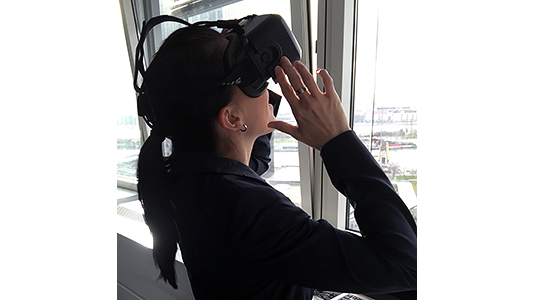

On 11-12 December 2014, VCDNP hosted an international workshop on New Technologies for Information Analysis to Support Non-Proliferation and Disarmament Verification. The workshop brought together a diverse group of experts from non-governmental organizations, academia, industry, government, and international organizations, including members of the Preparatory Commission for the Comprehensive Nuclear-Test-Ban Treaty Organization, the International Atomic Energy Agency, and the Organisation for the Prohibition of Chemical Weapons, to explore innovative information and geospatial technologies and approaches potentially useful for verification. The workshop was made possible thanks to the generous support of the Counter-Proliferation Programme of the United Kingdom Foreign and Commonwealth Office and the Carnegie Corporation of New York.
Each of the workshop panels examined technology development trends that can help non-proliferation and disarmament practitioners in their work to strengthen verification regimes. Discussions addressed public information searching, geospatial analysis and remote sensing, crowdsourcing sensors and approaches, information security, and virtual reality systems. Participants had the opportunity to view detailed demonstrations and to test out new technologies presented at the workshop. Industry members at the workshop included representatives from BlackBridge, BlackShore, EU Copernicus Programme, European Space Imaging, Geocento, MDA Information Systems, Sail Labs Technology, Safecast, Google/Skybox Imaging, and the Center for Virtual Reality and Visualization Research, or VRViS.

The workshop was a response to the need to examine possible ways to make use of the growing volume of publicly available information—such as online text, photos, videos, new media, and commercial satellite data—to support verification needs. The public and commercial nature of these information resources makes them particularly valuable to international organizations with large and diverse membership bodies, due to the increased ability to share the information and freely access sources. The continued exploration of new means of collecting, organizing, archiving, and sharing information can help to both strengthen existing verification regimes and move toward new solutions for future agreements.
The workshop highlighted the advancements in information and geospatial technology developments for global customers across a variety of domains. The event underlined the value for verification practitioners to continue engaging other technical fields, communicate verification challenges to new audiences—including private industry—and encourage the greater public to take a stake in non-proliferation and disarmament goals.
